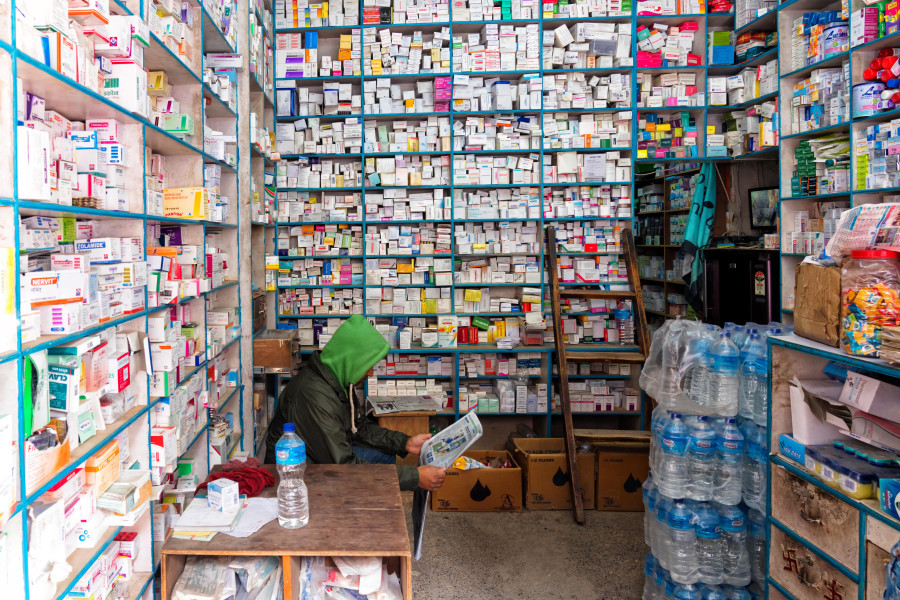Health
Kathmandu metropolis plans running fair price pharmacies
Officials say the pharmacies will provide medicines at a cheaper rate than MRP.
Post Report
In a bid to provide relief to the ailing, the Kathmandu Metropolitan City is preparing to set up fair-price pharmacies that sell medicines at rates less than the maximum retail price.
Officials at the metropolis’s health department said that at least one pharmacy will be established in the current fiscal year, and four more will open later.
“We are in the final stage of finalising the working procedure and guidelines for the fair-price pharmacies,” said Sajina Maharjan, an official at the metropolis's health department. “One pharmacy will be set up within this fiscal year, and others will be established afterwards.”
Setting up fair-price pharmacies is among the measures the City office is taking to provide relief to the metropolis’s residents. Officials said that the city office will first set up a fair-price pharmacy in the Babarmahal area, and then in other wards of the metropolis later on.
Officials said that the pharmacy will be self-sustained but will provide relief to the ailing people through the benefits it gets from drug companies. Pharmacies of some state-run hospitals, such as Manmohan Cardiothoracic Vascular and Transplant Centre and the Paropakar Maternity and Women’s Hospital, have been running fair-price pharmacies for years.
Those pharmacies sell medicines up to five times less than the maximum retail price marked on the medicines.
Even after selling medicines for heavily subsidised prices, those hospitals are not incurring losses. In fact, even at these discounted rates, the hospitals’ doctors admit they still make a profit of around 20 percent.
This is largely because pharmaceutical companies, like most other companies, are allowed to set their own MRP, which leads them to mark up their products at exorbitant prices. They provide medicines to hospitals and pharmacies at a fraction of the listed price and most hospitals and pharmacies sell drugs at the inflated MRP.
This fraudulent pricing of medicines is just one example of the deep-seated collusion among drug manufacturing companies, hospitals and pharmacies, and doctors themselves. Whether it has to do with pricing or prescribing medicines, the patients are the only ones at a disadvantage, officials at the Department of Drug Administration said.
According to officials, when a drug manufacturer comes up with a new drug, they are legally required to register the product with the Department of Drug Administration. The manufacturer proposes their own MRP, which the department then endorses. Since there are no rules in the Drug Act regarding the determination of the prices of medicines, companies look at the price of similar medicines produced by other national and international companies and set their own prices. While doing so, they can either inflate the price or keep prices down. But most companies sell their medicines through promotional activities—either by offering incentives to doctors or by providing huge margins to wholesalers and retailers.




 24.04°C Kathmandu
24.04°C Kathmandu














